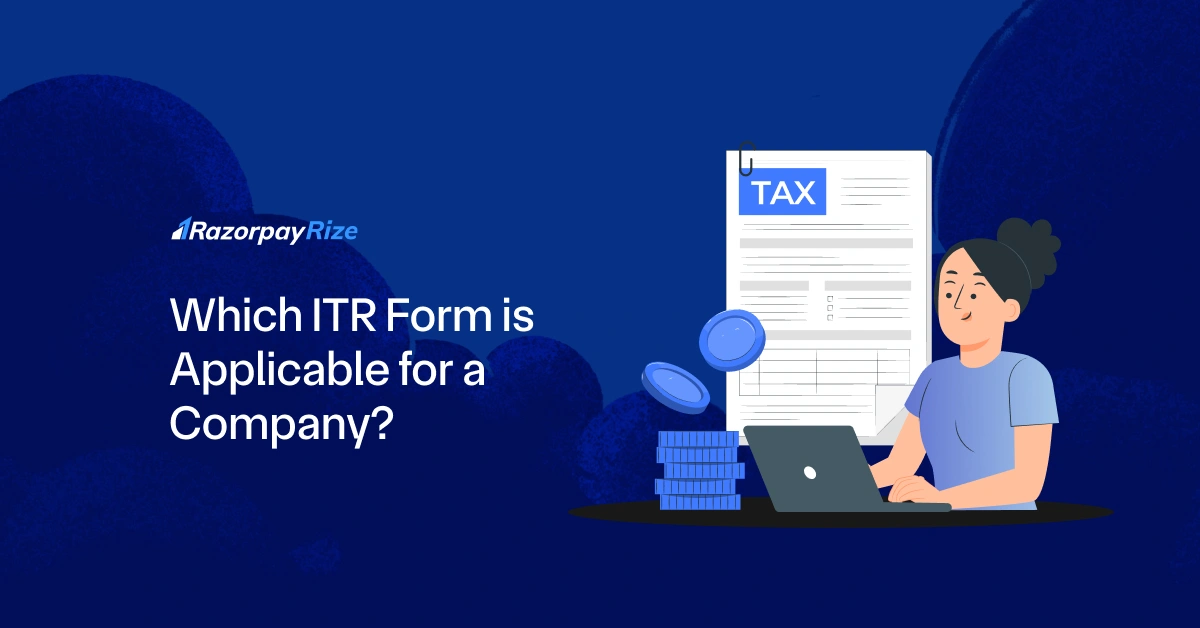Equity dilution is a concept that every founder, early investor, and shareholder needs to understand, especially as a company moves beyond the seed stage and starts to scale. It typically comes into play during funding rounds, when issuing Employee Stock Option Plans (ESOPs), onboarding strategic partners, or executing mergers and acquisitions.
In India’s rapidly evolving startup and investment ecosystem, it is really important to know how equity dilution works to maintain control, value, and strategic direction in a company.
This blog aims to simplify the concept of equity dilution by explaining what it is, how and why it happens, its implications for founders and shareholders, and, most importantly, how it can be managed smartly within the Indian business and regulatory ecosystem.
Table of Contents
What is Equity Dilution?
Equity dilution refers to the reduction in existing shareholders’ ownership percentage due to the issuance of new shares. Although it doesn't necessarily mean a loss in actual monetary value, it does mean reduced voting power, ownership stake, and potential control over the company.
For example, if a founder owns 50% of a company before a funding round and 40% after new shares are issued to investors, the 10% drop is equity dilution.
Causes of Equity Dilution in India
Several scenarios in India lead to equity dilution:
- Fundraising through equity: When a company raises capital by issuing new shares to investors (angel, VC, PE).
- ESOPs (Employee Stock Option Plans): Issuing shares to employees for retention and motivation.
- Convertible instruments: When convertible debentures or notes convert to equity.
- Mergers and acquisitions: New shares issued as part of a transaction.
- Bonus or rights issues: Depending on the structure, these can also dilute holdings if not proportionally subscribed.
Impact of Equity Dilution
Dilution can affect stakeholders in various ways:
- Founders: Loss of control or voting power if too much equity is given away early.
- Investors: Reduced ownership percentages, which may affect decision-making influence.
- Employees: If ESOPs are diluted too often, their potential upside gets reduced.
- Company valuation: Though dilution reduces percentage ownership, it can lead to growth and higher valuations, offsetting the effect in monetary terms.
How Does Share Dilution Happen?
Share dilution occurs when a company issues additional shares, reducing the ownership percentage of existing shareholders. While the total number of shares increases, each existing shareholder’s slice of the pie becomes smaller — unless they participate in the new issue.
Here are the most common ways share dilution happens in India:
1. Fundraising (Equity Rounds)
During seed, Series A, or later funding rounds, new investors are issued fresh equity. To accommodate them, the company increases its authorised and paid-up share capital, diluting the percentage held by existing shareholders.
Example:
A founder owns 100% of a startup with 1,00,000 shares. After raising funds from investors who are issuing 50,000 new shares, the founder’s ownership drops to 66.67%.
2. Issuing ESOPs (Employee Stock Option Plans)
Startups often set aside 5–15% of their cap table for ESOPs to attract and retain top talent. These options, once vested and exercised, convert into shares — reducing the percentage stake of other shareholders.
3. Conversion of Convertible Instruments
Instruments like convertible notes, SAFE (Simple Agreement for Future Equity), or CCDs (Compulsorily Convertible Debentures) convert into equity at a future date. When they convert, new shares are issued, which dilute existing ownership.
4. Mergers or Acquisitions
In some mergers or acquisitions, equity may be offered as part of the consideration to the merging entity or its shareholders. This leads to the issuance of new shares and causes dilution.
5. Bonus Shares to Select Stakeholders
Occasionally, a company might issue bonus shares to certain shareholders or employees as incentives, which can result in uneven dilution.
Reasons for Equity Dilution
- Capital infusion: To fund growth, R&D, hiring, marketing, etc.
- Strategic partnerships: Issuing equity to partners or advisors.
- Debt conversion: Debt turning into equity through convertible notes.
- Regulatory compliance: SEBI regulations may require public companies to maintain a certain free float, triggering new issuance.
Managing Equity Dilution in India
Equity dilution is inevitable as your startup grows — but managing it smartly can protect both your control and long-term value. Indian founders must understand the tools, strategies, and legal frameworks available to reduce unnecessary dilution and align all stakeholders.
1. Plan Your Cap Table Early
Create a 5–7 year cap table projection. Visualise future funding rounds, ESOP pools, convertible instruments, and expected dilution at each stage.
2. Raise What You Need, Not What You Can
Avoid over-raising in early rounds. Each round of funding comes at the cost of equity. Only raise what’s required to hit the next set of milestones.
3. Negotiate Better Valuations
Valuation is key to how much equity you give up. Strengthen your fundamentals, traction, and pitch to negotiate higher valuations, thus minimising dilution per rupee raised.
4. Use Convertible Instruments Strategically
Instruments like SAFE notes or CCDs can delay dilution until a priced round. Use them in early or bridge rounds to preserve equity while bringing in capital.
5. Be Thoughtful with ESOP Allocation
ESOPs are critical to building a strong team, but don’t over-allocate too early. Start with a lean pool (5–10%) and expand as your team grows and funding allows.
6. Include Anti-Dilution Provisions (If You're an Investor or Co-Founder)
While often investor-friendly, certain anti-dilution clauses can protect your equity in down rounds. Founders should understand these clauses and negotiate fair terms.
7. Consider Non-Dilutive Capital
Explore grants, government schemes (like Startup India Seed Fund, MeitY TIDE, or NIDHI), or revenue-based financing. These options offer capital with no equity dilution.
8. Maintain Founder Alignment
If co-founders have significantly unequal stakes, align expectations early. Future dilution can compound tensions if not addressed at the start.
How Shareholders Can Handle Equity Dilution?
- Pre-emptive rights: Ensure agreements include rights to participate in future rounds to maintain shareholding.
- Anti-dilution clauses: Particularly for investors, these can protect them from value dilution in down rounds.
- Monitor ESOP pools: Oversized ESOP pools dilute all shareholders.
- Regular cap table reviews: Stay updated to avoid surprises in ownership shifts.
Conclusion
Equity dilution is a natural part of a growing business, especially in India's thriving startup and investment landscape. While it may seem negative on the surface, it often enables access to capital, talent, and partnerships that fuel long-term value creation.
The key lies in understanding, planning, and strategically managing dilution to protect stakeholder interests while supporting the company’s growth.
Private Limited Company
(Pvt. Ltd.)
- Service-based businesses
- Businesses looking to issue shares
- Businesses seeking investment through equity-based funding
Limited Liability Partnership
(LLP)
- Professional services
- Firms seeking any capital contribution from Partners
- Firms sharing resources with limited liability
One Person Company
(OPC)
- Freelancers, Small-scale businesses
- Businesses looking for minimal compliance
- Businesses looking for single-ownership
Private Limited Company
(Pvt. Ltd.)
- Service-based businesses
- Businesses looking to issue shares
- Businesses seeking investment through equity-based funding
One Person Company
(OPC)
- Freelancers, Small-scale businesses
- Businesses looking for minimal compliance
- Businesses looking for single-ownership
Private Limited Company
(Pvt. Ltd.)
- Service-based businesses
- Businesses looking to issue shares
- Businesses seeking investment through equity-based funding
Limited Liability Partnership
(LLP)
- Professional services
- Firms seeking any capital contribution from Partners
- Firms sharing resources with limited liability
Frequently Asked Questions
Why does equity dilution occur?
Equity dilution happens when a company issues new shares, usually during funding rounds, ESOP allocations, or while converting instruments like convertible notes. This increases the total number of shares, reducing the ownership percentage of existing shareholders.
Is equity dilution always bad?
Not always. Dilution is a natural part of growth, especially if you're raising capital to build a bigger, more valuable company. What matters is how much value you're gaining in return for the equity you're giving up.
How can I protect myself from equity dilution?
- Plan your cap table in advance
- Negotiate better valuations
- Use convertible instruments smartly
- Keep ESOP pools lean
- Explore non-dilutive funding (grants, revenue-based capital)
- Use pre-emptive rights to maintain your stake in future rounds
What is a pre-emptive right?
Pre-emptive rights allow existing shareholders to buy new shares before they're offered to others. This helps them maintain their ownership percentage and avoid unwanted dilution during future fundraising rounds.








.webp)







